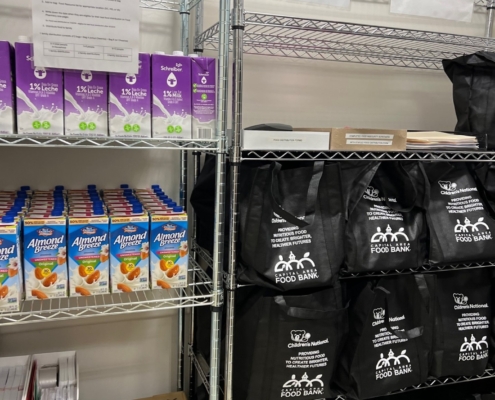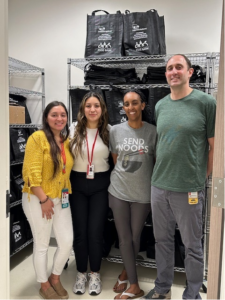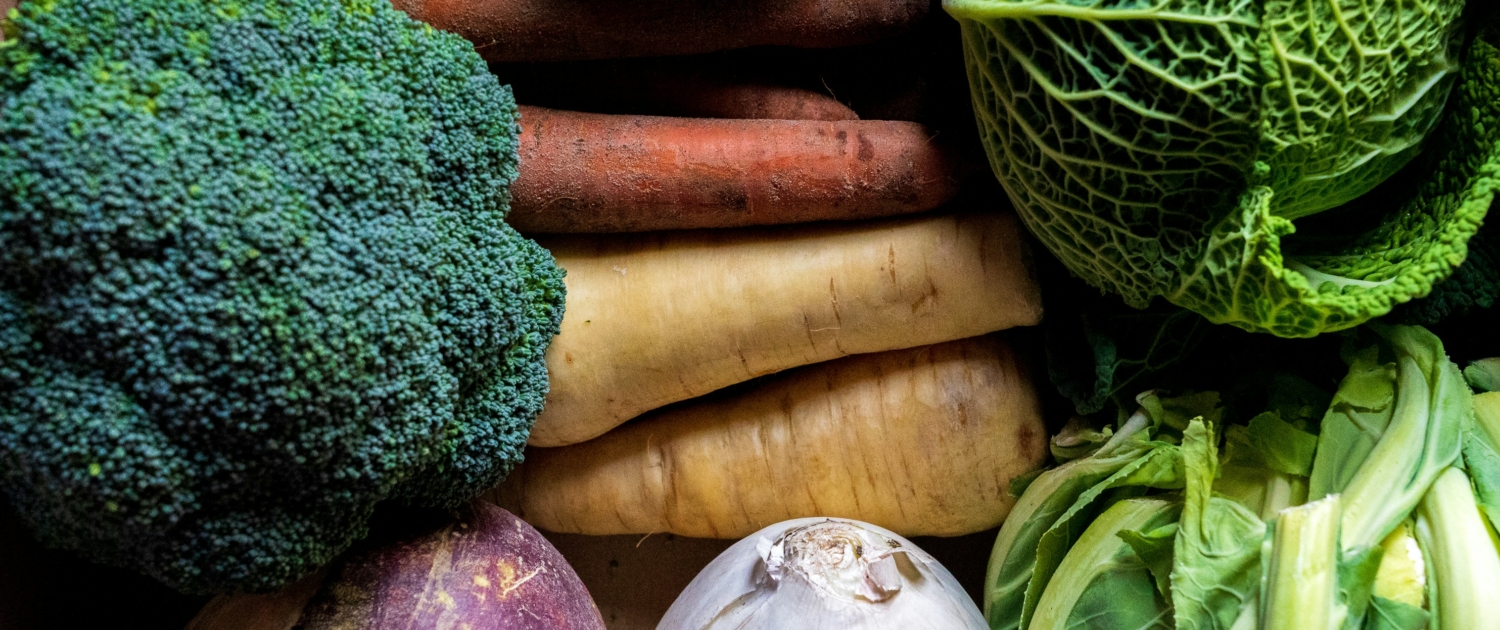
The Food Pharmacy at Columbia Heights
Behind an unassuming wooden door in the Children’s National Columbia Heights Health Center lies a treasure. In August 2024, the Columbia Heights team, in partnership with the Capital Area Food Bank and the Child Health Advocacy Institute at Children’s National, opened a Food Pharmacy, so that families experiencing food insecurity can leave their appointment with healthy, nourishing food to thrive. This is the second Food Pharmacy at Children’s National, with the first being located in the outpatient diabetes clinic. The Food Pharmacy offers a seamless approach, allowing families to access foods essential to a child’s overall health. It is also in response to the Community Health Needs Assessment, conducted by Children’s National, in which our community voices prioritized healthy food access. Families also receive recipe cards and tips for food preparation, information on accessing food in the community and contact information for the food bank’s hotline, where bilingual staffers field questions about specific foods, nutrition and cooking. The reusable grocery bags for families are filled with roughly 20 pounds of food and families can receive a monthly food distribution. The Food Pharmacy program is open to all patients and families at any type of visit, whether it is a sick visit or a well-child check.

Katherine Sierra, Family Services Associate, Rosy Chacon, Health Educator, ElShadey Bekele, Associate Medical Director, Daniel Newman, Medical Director, in the Food Pharmacy at Columbia Heights (from left to right)
The Columbia Heights Health Center serves approximately 10,000 children each year, and 1 in 5 families screen positive for food insecurity. Columbia Heights screens for food insecurity using the validated 2-item screener that is administered at check-in or online prior to appointments. The American Academy of Pediatrics (AAP) policy statement, Promoting Food Security for All Children, recommends that pediatricians:
-
-
- Screen and identify children at risk for food insecurity;
- Connect families to needed community resources; and
- Advocate with other key partners and stakeholders for federal, state, and local policies that support access to adequate and healthy food so that all children and their families can be nourished, active, and healthy
-
The Food Pharmacy is the realization of years of planning and coordination, and directly responds to the needs of our community. Desiree de la Torre, Executive Director of Community and Government Affairs in the Child Health Advocacy Institute states:
“Opening a food pharmacy at our Columbia Heights Health Center is not a complete solution to the community’s health challenges, but it is a crucial step in improving the health of our children and building trust with the families we serve. This initiative underscores our commitment to addressing immediate needs while developing a stronger, healthier community.”
As leaders at Columbia Heights, Drs. Daniel Newman and ElShadey Bekele have always championed offering a range of services to address families’ needs, and have led the way in developing innovative partnerships. According to Dr. Daniel Newman, Medical Director of the Children’s National Columbia Heights Health Center:
“We don’t believe we are going to fully solve the problem of food insecurity for our families with simply giving out nutritious foods once a month here. But we hope to use this opportunity to foster connections to other community resources and to allow for more effective education around healthy food choices. This extra food may help fill in the gaps between other established food resources that families already benefit from- like WIC or SNAP, And with our diverse patient population, many of our families may not qualify for these public benefits, or may qualify yet not apply for these benefits due to fears around changes with the public charge immigration legal ruling. Expanding our medical home to include a food pharmacy really is acknowledging that good health does not just come from medical care, but rather a holistic approach that includes addressing social determinants through community partnerships.”
Header photo by Nick Fewings on Unsplash
About the author

Danielle G. Dooley, MD, MPhil, FAAP
Medical Director, Community Affairs and Population Health within the Child Health Advocacy Institute at Children's National Hospital



